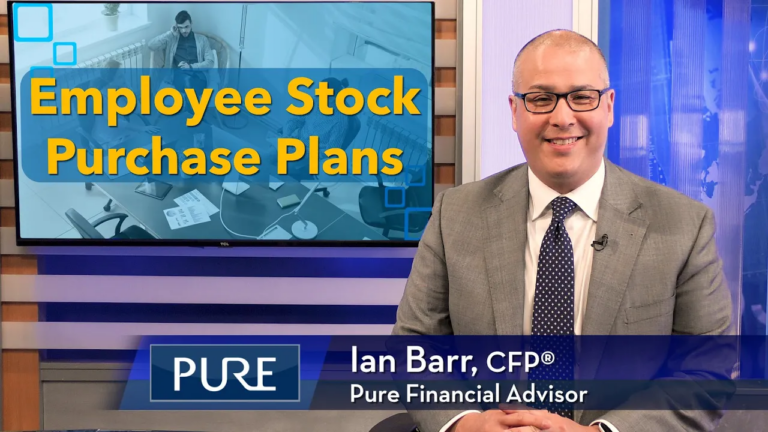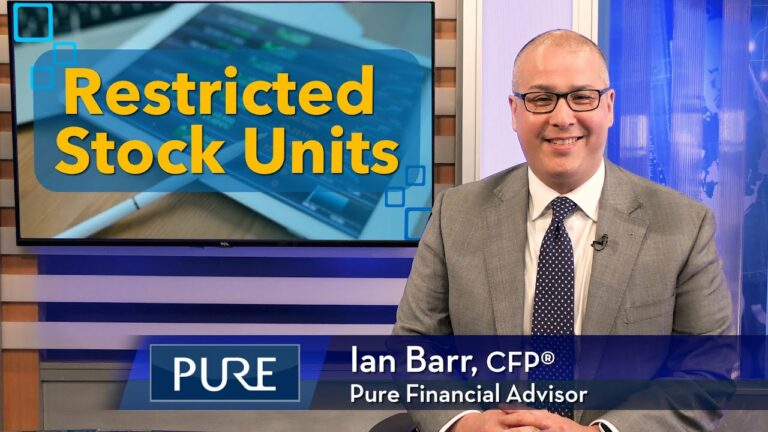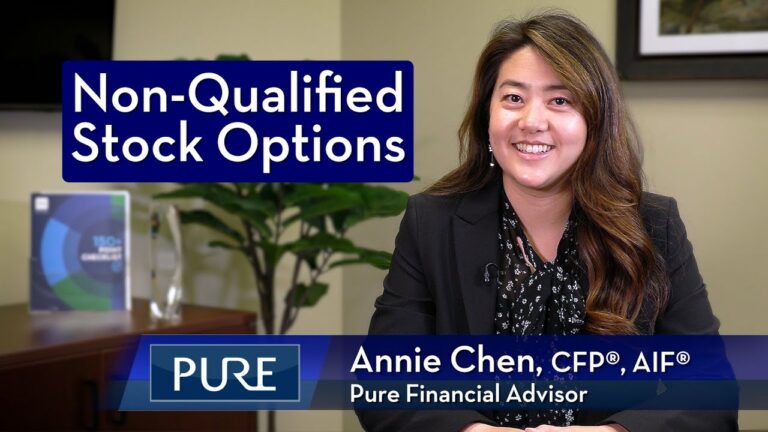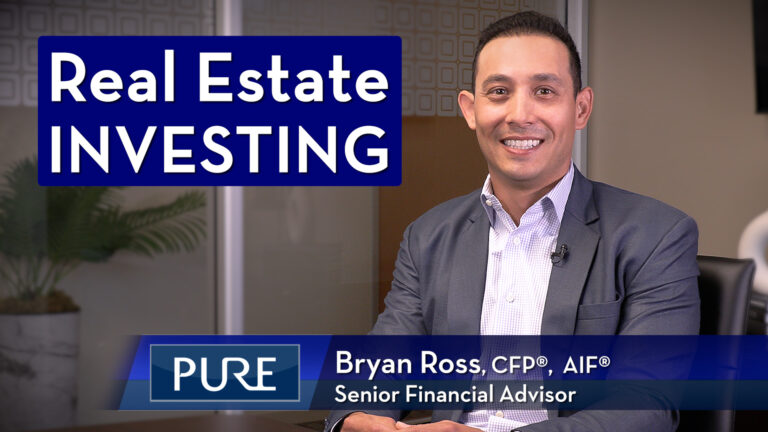Turning your ideal retirement into reality requires a strategic approach. Pure’s Senior Financial Planner, Robert McCullock, CFP®, AIF®, introduces the concept of SMART retirement goals to lay the groundwork for optimizing your savings.
FREE GUIDE | Retirement Readiness Guide
Transcript
Let’s jump into the important topic of setting SMART retirement goals. Retirement isn’t just a milestone; it’s a life changing event requiring thoughtful planning. What kind of life do you see in retirement? Is it travel, hobbies, or enjoying quality time with loved ones. Defining these aspirations form the foundation of your retirement goals. SMART goals are Specific, Measurable, Achievable, Relevant, and Time-bound. Let’s break down these principles.
Specific
When setting goals, please avoid vague aspirations. Be very clear about what you want to achieve. Instead of saying, “I want to be wealthier,” say, “I currently live on $8k a month, I would like to raise that to $10k a month in my retirement, so I can travel and see family.”
Measurable
Establish solid criteria to track your progress. If you want a certain income to retire on by age 65 you need to set up a regular timeline and a goal check to measure that progress. If you check on your progress only once a year it can be easy to get a full year behind. Maybe quarterly or monthly is a better check.
Achievable
While we all love dreaming big, it’s crucial to set goals that are within your reach. Push yourself, but be reasonable. Also, try breaking down larger goals into smaller, manageable tasks. Not only will this ensure progress, but it also boosts your confidence as you accomplish each step.
Relevant
You need to align your goals with your personal values and long-term vision of yourself. Making a goal relevant is where you attach it to your emotions or identity. This is the part of the process that forces your follow through and holds you accountable.
Time-bound
Setting a deadline creates a sense of urgency. Please establish realistic timelines for your goals. We tend to get overly optimistic when we are ahead of our goals or when the markets are hot. It’s also common to set deadlines that are too far out when we are behind in our plans or when markets are down.
Remember, setbacks are part of the journey. Learn from obstacles, adjust your approach, and keep moving forward. By incorporating specificity, measurability, achievability, relevance, and time-bound elements into your goals, you can make your ideal retirement a reality. If you need help or have questions about your plan, take advantage of a free financial assessment to see if you’re on track to meeting your retirement goals.
Subscribe to our YouTube channel.
IMPORTANT DISCLOSURES:
• Investment Advisory and Financial Planning Services are offered through Pure Financial Advisors, LLC, a Registered Investment Advisor.
• Pure Financial Advisors LLC does not offer tax or legal advice. Consult with your tax advisor or attorney regarding specific situations.
• Opinions expressed are subject to change without notice and are not intended as investment advice or to predict future performance.
• Investing involves risk including the potential loss of principal. No investment strategy can guarantee a profit or protect against loss in periods of declining values.
• All information is believed to be from reliable sources; however, we make no representation as to its completeness or accuracy.
• Intended for educational purposes only and are not intended as individualized advice or a guarantee that you will achieve a desired result. Before implementing any strategies discussed you should consult your tax and financial advisors.
CFP® – The CERTIFIED FINANCIAL PLANNER™ certification is by the Certified Financial Planner Board of Standards, Inc. To attain the right to use the CFP® designation, an individual must satisfactorily fulfill education, experience and ethics requirements as well as pass a comprehensive exam. Thirty hours of continuing education is required every two years to maintain the designation.
AIF® – Accredited Investment Fiduciary designation is administered by the Center for Fiduciary Studies fi360. To receive the AIF Designation, an individual must meet prerequisite criteria, complete a training program, and pass a comprehensive examination. Six hours of continuing education is required annually to maintain the designation.












